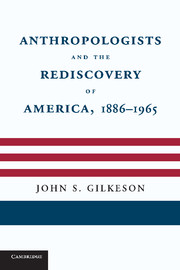3 - The Psychology of Culture and the American Character
Published online by Cambridge University Press: 06 December 2010
Summary
In 1950, as he prepared his Walgreen Lectures at the University of Chicago on the impact of economic abundance on the American character, David M. Potter was “assailed by misgivings.” Although the concept of the American character had been tarnished by its racial concomitants, few American historians failed to invoke the concept, “either occasionally or constantly, explicitly or implicitly,” in their attempts to evoke the “total experience” of the American people. Yet, unless Americans could be regarded as “possessing distinctive traits and social adaptations,” there would be no “unifying theme” in American history and the field would hold “little intellectual attraction” for historians. How, then, could the concept of national character be redeemed for its continued use by historians? In the published version of his lectures, People of Plenty (1954), Potter pointed out how the “behavioral scientists” Margaret Mead, Karen Horney, and David Riesman had not only freed the concept from “the curse of racism” but had documented the existence of “uniformities of [American] attitude and behavior.” What the behavioral scientists had not done, though, was to identify the “determinants” of national character and to trace the development of the American character over time. This is where historians and American studies scholars were to come into the picture.
The rehabilitation of the concept of national character was a product of culture and personality, an interdisciplinary collaboration between anthropologists (and other social scientists as well) and psychiatrists. It represented the application of psychological (and psychiatric) methods and viewpoints to anthropological material.
- Type
- Chapter
- Information
- Anthropologists and the Rediscovery of America, 1886–1965 , pp. 118 - 158Publisher: Cambridge University PressPrint publication year: 2010



